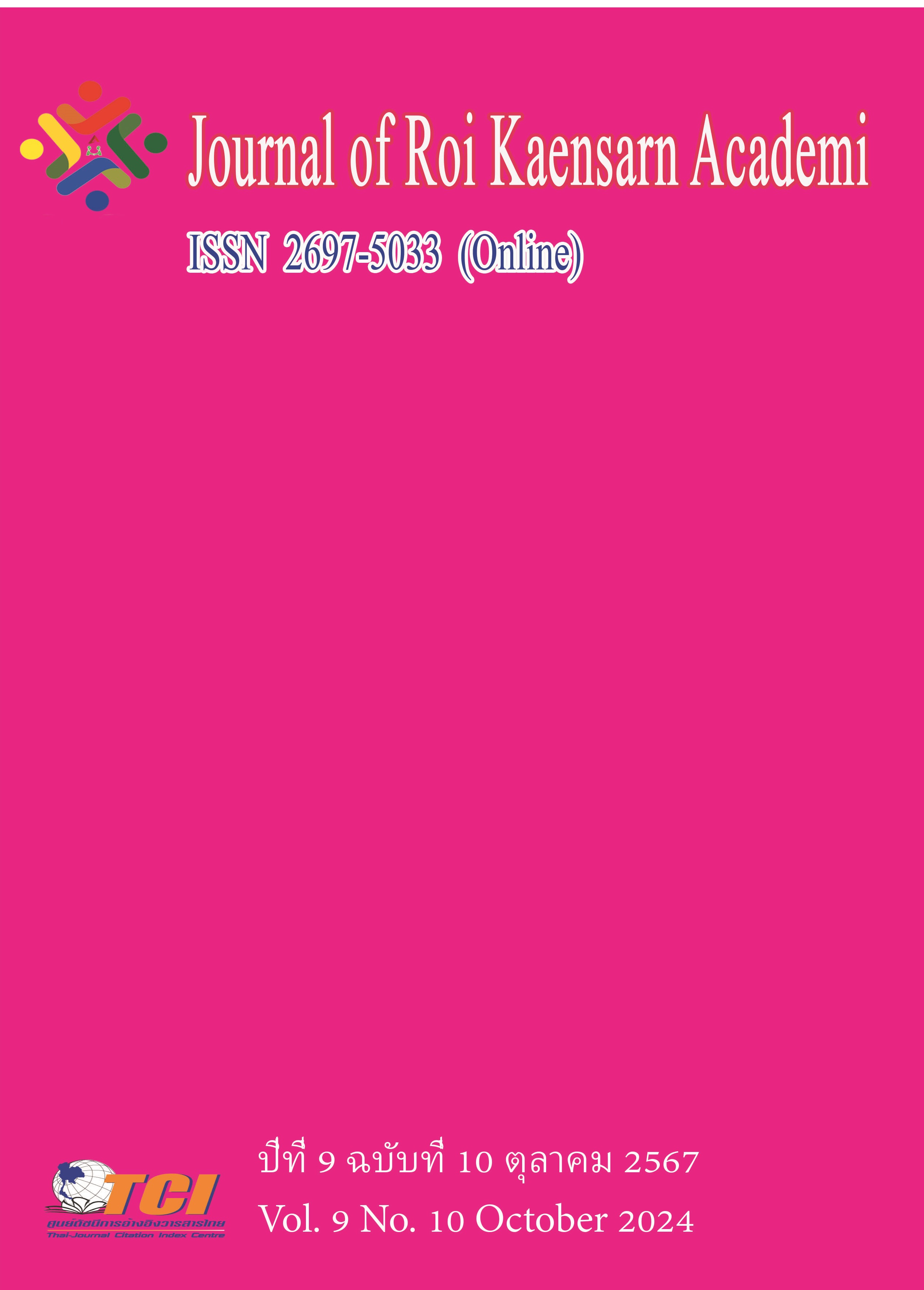The Analysis of factors affecting parental participation in early childhood education management in Jiangmen City
Main Article Content
บทคัดย่อ
Background: Family education plays a crucial role in shaping children's development, especially within Chinese culture where traditional values profoundly impact parenting practices. In Jiangmen, Guangdong Province, understanding parental involvement in early childhood education is essential, as traditional authoritarian styles may hinder children's independence and holistic growth.
Aims: (1) Evaluate parental involvement and satisfaction with kindergarten activities. (2) Perform exploratory factor analysis on parental involvement in early childhood education. (3) Develop a predictive model to analyze the influence of parental involvement on early childhood education outcomes.
Methodology: A sample of 104 kindergartens in Jiangmen was selected using simple random sampling. Data were collected from parents, teachers, and administrators through questionnaires and face-to-face interviews. Quantitative data were analyzed using statistical methods and exploratory factor analysis, while qualitative data provided deeper insights into parental engagement practices.
Results: The study found that parental involvement in kindergarten activities is notably high, with satisfaction scores averaging between 4.50 and 4.80. Key themes included effective participation in children's growth, collaboration with teachers, and the importance of a supportive home environment. Exploratory factor analysis revealed a significant component labeled "Parental Education Involvement," representing critical dimensions of engagement. A predictive model was developed based on the component score matrix, highlighting the positive influence of active parental involvement on early childhood education outcomes.
Conclusion:The findings indicate a positive shift in parental attitudes toward education, moving from traditional authoritarian approaches to more collaborative and supportive practices. This emphasizes the significance of home-school cooperation in enhancing early childhood education outcomes. The study recommends strategies to further encourage parental involvement and suggests areas for future research to support children's comprehensive development in a rapidly changing educational landscape
Article Details
เอกสารอ้างอิง
Chen, X. Z., & Yu, D. Q. (2007). Investigation and countermeasure analysis of parents' participation in kindergarten teaching activities. Early Childhood Education Science, 10. https://doi.org/1004-4604
Dai, Y. X. (2021). Problems and suggestions of Chinese family education taking two movies as examples for analysis. In International Conference on Humanities Education and Social Sciences. (Vol. 615, pp. 390-394).
Dong, Y. (2017). Problems and countermeasures of parents' involvement in kindergarten activities. This work supports the importance of parental participation in enhancing educational outcomes.
Guan, Y. (2006). English Chinese Dictionary of Two-way Management. Shanghai Jiaotong University.
Ho, S. C. (1995). Parent involvement: A comparison of different definitions and explanations. Education Journal. 23, 39–68.
Kapur, R. (2018). Early childhood education (pp. 1-31). https://www.researchgate.net/publi cation/323961021_Early_Childhood_Education
Kevin, F. (2009). Tips for effective management. School Business Affairs, 34-37. https://f iles.eric.ed.gov/fulltext/EJ919374.pdf
Kim, R. X. (2011). The expression of the tendency of primary school in early childhood education (Chinese). Studies in Early Childhood Education,3.https://doi.org/10. 3969/j.issn.1007-5070.2013.24.313
Keith, N. (2009). Three fundamental bonds and five constant virtues. Comprehensive Index Starts, 5. https://chinaconnectu.com/wp-content/pdf/ThreeFundamentalBondsandFi veConstantVirtues.pdf
Sapungan, G. M., & Sapungan, R. M. (2014). Parental involvement in child’s education: Importance, barriers, and benefits. Asian Journal of Management Sciences & Education, 3 (2).
Sun, J. T. (2009). 30 years of educational management in China: Achievements, characteristics, and problems. This literature emphasizes the benefits of parental involvement in children's education.
Tan, M. (2010). On the modern significance of the value orientation of Confucian traditional education. This source discusses how traditional values can adapt to modern educational needs, aligning with the findings of evolving parental engagement.
Xing, X. L. (2019). Development history and influence of Confucianism. Soochow University of Science and Technology, 40 (8). https://doi.org/104—5856(2019)08—0045—03

